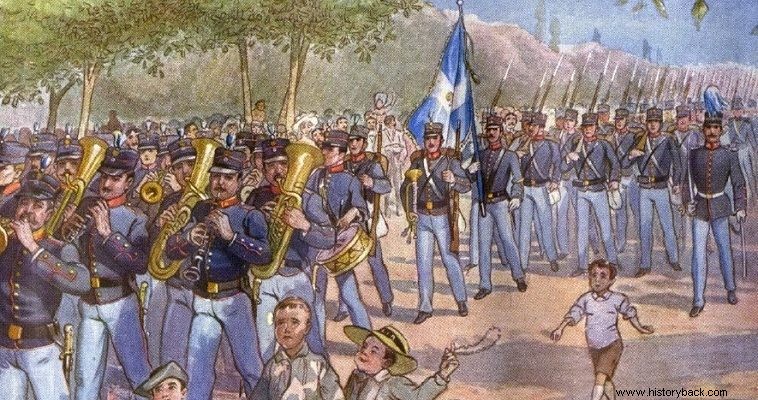
In 1877 the Russo-Turkish War broke out. The Russians moved south from Romania but stopped at Plevna in Bulgaria. Little Greece followed the developments with interest. The prime minister at the time, Alexandros Koumoundouros, intended to take advantage of the involvement of the Turks in order for Greece to gain territories in Epirus, Thessaly and Macedonia.
For this reason, through the Greek consulates, revolutions began in the then unredeemed Greek provinces of the Ottoman Empire, at the beginning of 1878, as the Russians had now been defeated and an armistice was imminent. Parallel to the revolutionary movements, without war having been declared, a Greek military force of about 24,000 men under Major General Skarlatos Soutsos had gathered in Lamia ready to invade the Turkish-occupied territories.
Finally, on the morning of January 21, 1878, a force of 8,000 men invaded the Turkish-occupied territory and reached Domokos. The Turks simply retreated without fighting. The rest of the Greek force followed. But on the evening of January 24, before hostilities began, a telegram ordered the Greek general to retreat immediately... What had happened?
On January 22, 1878, Athens was informed that an armistice had finally been signed between Russia and the Ottoman Empire. That same evening an unintelligible encrypted telegram from the Greek ambassador in Constantinople, Andreas Kountouriotis, arrived at the Greek Ministry of Foreign Affairs in which the responsible officials could only decipher the words "passport" and "Hovart Pasha" (British admiral in the service of the Sultan and commander of the Ottoman fleet).
Immediately the impression was created that the Turkish ambassador would ask for his passport, that is, the Ottoman Empire would declare war on Greece and that the Turkish navy would bombard Greek ports, including Piraeus. Of course, the telegram didn't say that. It was just never received in its entirety.
The Turkish fleet, however, in reality, could not even move without coal. And yes, there were voices in the sultan's council that spoke of an immediate attack on Greece, but with the Russian army in Adrianople, this was easier said than done.
Thinking wisely, the Turkish sultan ordered that no movement be made against Greece. However, it was already too late for Greece... The famous "Kountouriotis telegram" had been leaked and had caused a wave of panic.
The British and French incited the panic with telegrams and movements of their diplomatic missions in Greece. What followed, however, can hardly be described in other words than the word "rezilema".
In the Greek islands, thousands of residents boarded ships and came to Piraeus to escape the Turkish ships that had never sailed from their bases.... The Piraeus had camped on the surrounding heights, waiting for the Turks. And the appearance of a small boat still caused panic. The phrase "the Turks in Faliro" was heard often - often...
As for the army, he hastened to place his best guns in Piraeus to stop the Turkish war... And the commander of the National Bank asked for a group of French marines to protect the bank so that the Turks who... were coming, would not seize the Greek gold .
Pressured by the three "protecting" powers, the panicked Greece withdrew its army from Thessaly, without at the same time ordering a suspension of the revolutionary movements in Thessaly, Macedonia and Epirus... The movements continued and simply died out under foreign pressure soon.
